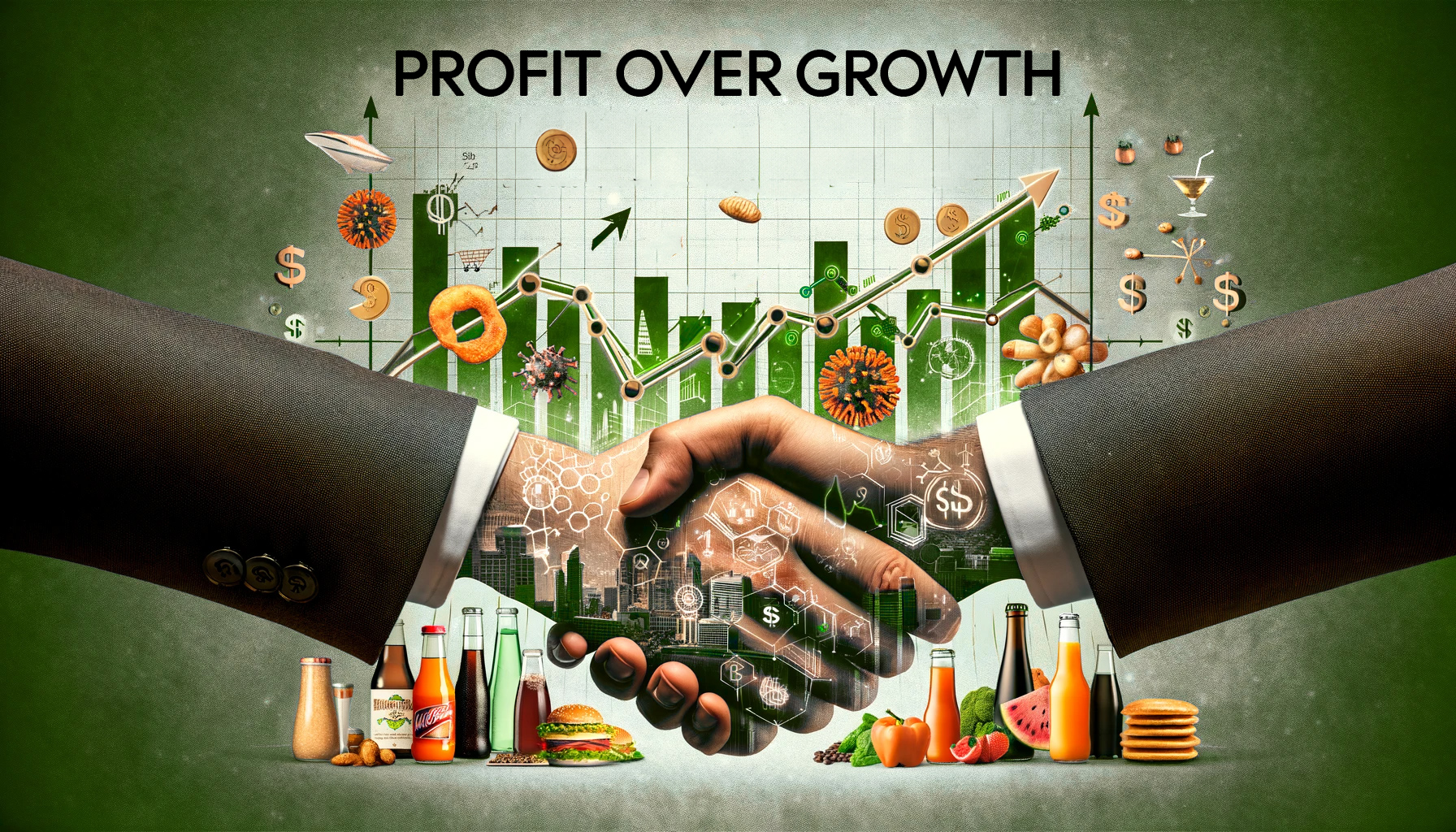Celebrity endorsements might make products appear irresistible, but the reality is much harsher. With over 70% of celebrity food and beverage brands failing, it’s clear that star power alone isn’t enough to guarantee success. From Kylie Jenner’s Glow to Jason Momoa’s Mananalu Water, many celebrity ventures have fizzled despite the fame backing them. Dive into the reasons behind these high-profile flops and discover what it truly takes for a brand to succeed in the competitive market.
Profit Over Growth: The New Paradigm in Food and Beverage M&A Post-Pandemic

The landscape of mergers and acquisitions (M&A) in the food and beverage industry is undergoing a significant transformation, shifting from a primary focus on high-growth companies to an increasing emphasis on profitability, particularly in the wake of the COVID-19 pandemic.
Historical Context and Changing Dynamics
Traditionally, the industry placed a premium on growth-oriented metrics. Companies like Vitamin Water, Fuse, Sobe Beverage, Bai, and Liquid Death epitomized this trend, with their valuations often reflecting potential market expansion and customer reach, rather than immediate financial performance. Acquirers in these cases were more interested in the scalability and market penetration capabilities of target companies, often overlooking the immediate profitability factor.
However, the post-pandemic era has ushered in a change in this dynamic. According to the insights from Aptean’s 2024 Food and Beverage Trends Report, a growing number of food processors, manufacturers, and distributors are not only expecting to increase their revenue but also their profits in 2023 compared to the previous year. This marks a noticeable shift towards valuing profitability and EBITDA (Earnings Before Interest, Taxes, Depreciation, and Amortization) alongside traditional growth metrics. The report indicates a more nuanced approach by companies, balancing the pursuit of market expansion with financial robustness.
The Role of ESG in Shaping M&A Trends
Another critical factor reshaping M&A trends in the food and beverage industry is the increasing importance of Environmental, Social, and Governance (ESG) considerations. The pandemic has heightened awareness of sustainability and ethical practices, leading investors and acquirers to pay closer attention to a target company’s ESG profile. This shift is not just a matter of corporate responsibility; it reflects a deeper understanding that sustainable practices can drive long-term profitability and resilience.
Innovative agriculture, plant-based food alternatives, and craft beer segments have seen increased interest, especially in the context of ESG-focused investments. For instance, in Australia, craft breweries and companies specializing in innovative agriculture have attracted significant attention from foreign investors. This trend indicates a broader preference for businesses that align with sustainable and ethical practices, which is increasingly seen as integral to long-term financial success.
Impact of Economic Conditions on M&A
The economic conditions following the pandemic have also influenced M&A strategies. With inflation and supply chain disruptions impacting the global economy, companies are more cautious and are considering financial stability and resilience as critical factors in their acquisition strategies. The ability of a business to maintain profitability in challenging economic conditions is becoming a key consideration.
Furthermore, the overall landscape of the food and beverage industry is also evolving, with a heightened focus on technology and digital transformation. Companies that demonstrate an ability to adapt to changing market conditions, particularly those that have invested in digital capabilities, are becoming more attractive in the M&A space.
Conclusion
In conclusion, the food and beverage industry’s approach to M&A is becoming more sophisticated, with a balanced focus on growth, profitability, and sustainability. This change reflects a broader shift in business priorities post-pandemic, recognizing the importance of financial health and responsible business practices. As the industry continues to evolve, it’s likely that these trends will further shape the landscape of mergers and acquisitions in the food and beverage sector.







